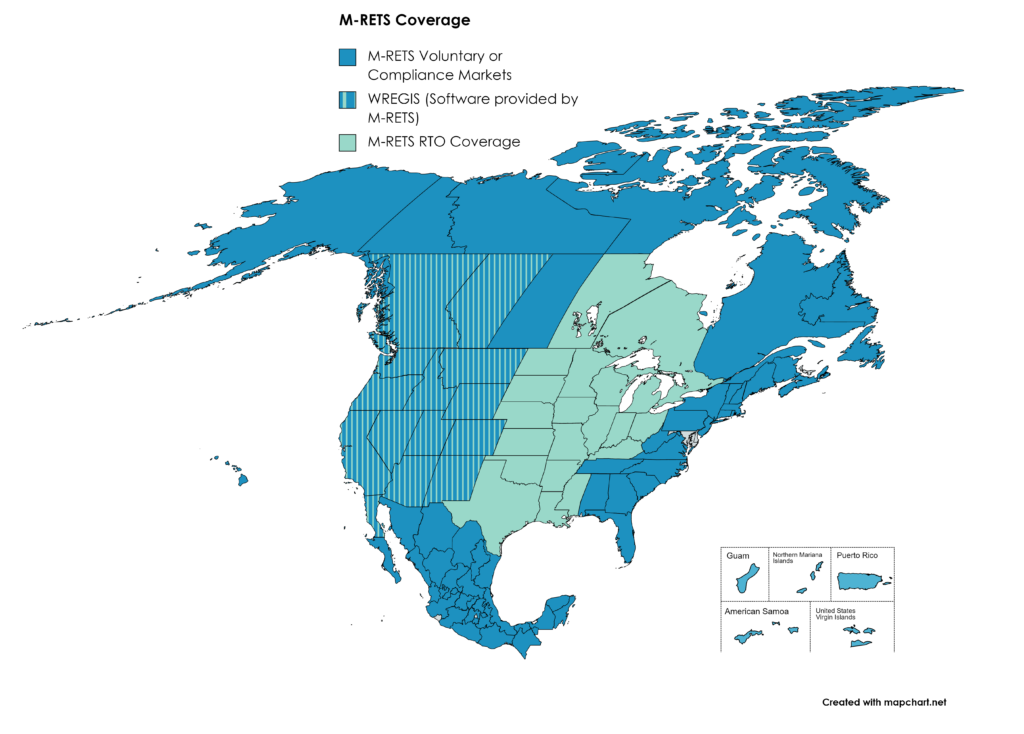Hourly generation data access is an important first step in a multi-faceted process to establish data-driven renewable energy markets.
M-RETS is a non-profit registry that owns and operates our platform funded through user fees. M-RETS began tracking hourly RECs in 2019; with six full-time staff, three on the support team, and three software developers with a budget of less than $1.5 million/year. We supported the first hourly Granular Certificate transaction with Google, with four full-time support team members and five software developers. As consumers expand their carbon-free energy initiatives, greater access to data will allow organizations to make more informed decisions to lower their carbon emissions.
Integrating hourly data will help users ensure that each hour of their operations is matched to actual renewable energy produced at the same time. Hourly generation data is more accurate and reliable in accounting for renewable energy use. In a first step toward establishing data-driven renewable energy markets, M-RETS worked with Google to complete the first hourly Renewable Energy Certificate (REC) transaction in early 2021. Learn more in our latest white paper “A Path to Supporting Data-Driven Renewable Energy Markets” authored by M-RETS President and CEO Ben Gerber.
Is tracking hourly RECs achievable across the US?
- We celebrate the PJM announcement that they will be the second tracking system in the United States to accommodate hourly generation and hourly certificate claims beginning in March 2023.
- M-RETS has pioneered the the development of tracking Granular Renewable Energy Credits using the Energy Tag Standard. The other REC tracking systems and are in various phases of considering Granular REC tracking.

- While M-RETS tracks across North America, some regions require market participants to only use their regional tracking system.
- The Energy Tag Standard provides a pathway to track hourly data in those RTOs if existing regulations require registration in a tracking system that cannot implement hourly data tracking and Granular Certificates.
- Lastly, DOE could standardize and streamline API metering standards that would allow registries to pull data directly from generation sources.
Utilities have begun to offer their customers 24/7 renewable energy programs:
- Peninsula Clean Energy has a goal to provide 24/7 renewables by 2025.
- Duke Energy filed an hourly matching tariff in October 2022
- Entergy Arkansas and the U.S. government signed the first MOU to work towards 24/7 CFE
- Madison Gas and Electric (MG&E) offers a Renewable Energy Rider24/7 CFE tariff. MG&E ties certain Dane County consumption meters to a specific array on a 15-minute basis.
How it works:
Data-driven energy markets will help realize greater decarbonization across our economy.
Hourly data is the key to unlocking the data integrations that customers seek to help them achieve their sustainability goals. Ultimately, the best way to measure success is through showcasing actual, quantifiable decarbonization, greater access to data helps customers get there. The achievement of completing the first hourly transaction in a production REC platform is just the beginning. M-RETS continues to lead the development of a process that can scale globally to multiple consumers.
